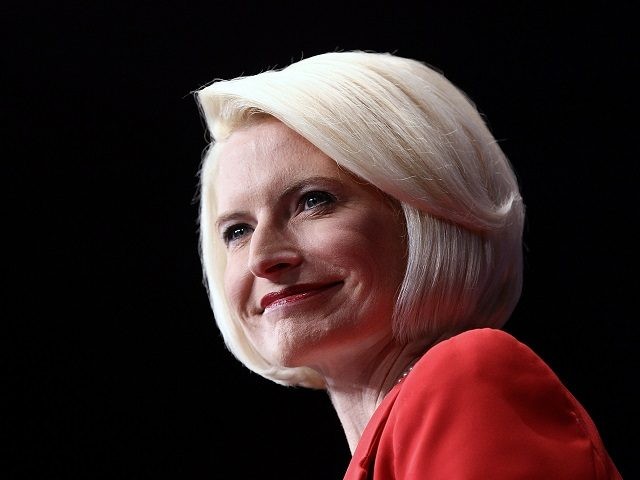Callista Gingrich, the Trump nominee for U.S. Ambassador to the Holy See, appeared before the Senate Foreign Relations Committee on Tuesday as part of a confirmation process expected to move forward with little resistance.
In her opening statement, Mrs. Gingrich spoke of President Trump’s recent meeting with Pope Francis in the Vatican, noting that the two leaders “highlighted shared concerns, including the protection of Christian communities in the Middle East.”
“Pope Francis has powerfully called on religious leaders and people of all faiths to unequivocally reject terrorism and violence in the name of religion,” she said, underscoring the significant overlap between global interests of the Vatican and the United States.
The Holy See, she said, “is engaged on every continent to advance religious freedom and human rights, to fight terrorism and violence, to combat human trafficking, to prevent the spread of diseases like Ebola and HIV/AIDS, and to seek peaceful solutions to crises around the world.”
Gingrich also stressed the importance of U.S.-Vatican relations by holding up the Church’s unique situation in the world.
“The Catholic Church is a unique global network, overseeing the world’s second-largest international aid organization, operating 25 percent of the world’s healthcare facilities and ministering to millions, in every corner of the world,” she said.
Sen. Tom Udall (D-New Mexico) asked Gingrich about the apparent contrast between President Trump and Pope Francis on environmental issues, an area that the Pope has repeatedly emphasized.
Gingrich said that Mr. Trump is committed to sustaining “our clean air and our clean water,” that “we aren’t backing off of that” despite withdrawing from the Paris climate agreement, and the President is determined to make the United States an “environmental leader.”
Sen. Jeff Merkley of Oregon expressed skepticism, telling Gingrich that he must have missed the statements from Trump that gave her such confidence, adding that he was “not persuaded.”
Merkley may indeed have missed the President’s address when he announced to the country that the U.S. would be pulling out of the Paris climate accord, where he made a distinction between that particular agreement and America’s commitment to clean air and water.
On that occasion, Trump said that the United States “will continue to be the cleanest and most environmentally friendly country on Earth. We’ll be the cleanest. We’re going to have the cleanest air. We’re going to have the cleanest water.”
“We will be environmentally friendly, but we’re not going to put our businesses out of work and we’re not going to lose our jobs,” he said.
Curiously, the World Health Organization (WHO) would seem to agree with the President, and revealed in its most recent report on air pollution that the U.S. is among the nations with the cleanest air on the planet.
According to that report, the United States has significantly cleaner air than Germany, Italy, Switzerland, the UK, Japan, Austria and France. In this regard, the U.S. is undeniably a leader in effective environmental protection.
In Tuesday’s hearing, Mrs. Gingrich appeared along with three other Trump nominees: Carl C. Risch, named for assistant secretary of state for counselor affairs; Edward G. Glass, as Ambassador to Portugal; and Nathan Alexander Sales, Trump’s choice for Coordinator for Counterterrorism.
If confirmed, Mrs. Gingrich, the wife of former House Speaker Newt Gingrich and a former congressional aide, will become the 11th U.S. ambassador to the Vatican.
She would succeed Ambassador Ken Hackett, who retired in January, and would be the third woman to serve in the post after Lindy Boggs, who served 1997-2001, and Mary Ann Glendon, who served 2008-2009.
Follow Thomas D. Williams on Twitter Follow @tdwilliamsrome

COMMENTS
Please let us know if you're having issues with commenting.